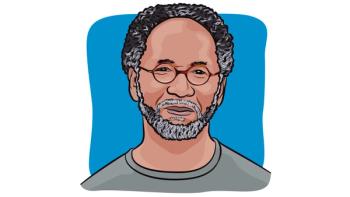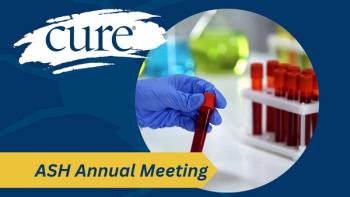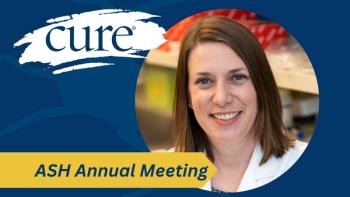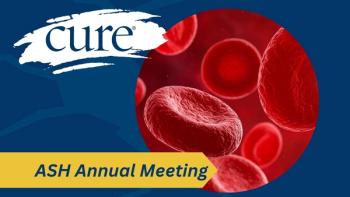
Joining a Chronic Lymphocytic Leukemia Trial

Transcription:
Kristie L. Kahl: Can you break down how a clinical trial works?
Dr. Susan O’Brien: So, CLL clinical trials come in a lot of different flavors. They can be trials of new agents, completely novel agents, that don't yet have FDA approval and they can be drugs that are next generation. So, for example, we have a BTK inhibitor, but another company might think that they have a better BTK inhibitor. Sometimes there are combinations of drugs. So there are trials right now, for example, combining (Imbruvica [ibrutinib]) and (Venclexta [venetoclax]), two agents that have been approved separately, that have really great activity in CLL. There’s another trial combining venetoclax with (Copiktra [duvelisib]), a different category of drugs.
I think a lot of people sometimes have the misconception, particularly in leukemia, that they're anxious about maybe participating in a clinical trial because of placebo. I don't think I've ever seen one in CLL in patients who need treatment where there's any kind of assignment to a placebo. I think that intimidates a lot of people.
…I think it's important for a patient to consider a clinical trial, particularly with the novel agents if they're available because, for example, if we think about the fact that ibrutinib completely changed the landscape for CLL, it's really been a total game changer. It was a small molecule that was approved. If you consider how long it takes to get a drug FDA approved, and that one by the way went really fast, what that means is that people who are on the clinical trials actually have access to the drug years before that drug becomes FDA approved. So it can really get you access to novel, great drugs before they're even out there for the rest of the community to use.
We also have to keep in mind that clinical trials are very important because that's the only way we get new drugs. Every drug that is approved by the FDA had to be tested and usually in more than one clinical trial. Usually the first trial looks for the appropriate dose and the second trial looks at how well people respond, and then when we go to what we call phase 3 those are what are the randomized trials where a patient is randomly assigned to what's usually considered the standard of care or the newer drug. There's all different places along the way where we have to accumulate that trial data before it goes to the FDA for approval. That’s why people who happen to get on a great drug can have years of early access to it before it even gets approved.
We have to remember that clinical trial participation is so important because as I said no drug can get approved without clinical trials so if there are no clinical trials, we don't have any new drugs.
Kristie L. Kahl: You mentioned misconceptions about clinical trials. Are there other misconceptions we can negate about clinical trials?
Dr. Susan O’Brien: Some people have the anxiety that you're experimenting on me. Well we don't like to call it experimenting, but yes you can think of it as the fact that you are testing out a drug that hasn't been given to a lot of people, especially in the phase 1 part of the trial where you're looking for the dose, you’re one of the first people on the trial. So you would be one of the first people ever to get that drug. If you're on a phase 2 trial, where you're looking at response…then people did get it before you and that's why it's moving forward to phase 2. By the time it gets to phase 3, where you're randomly comparing it to standard of care there's plenty of knowledge. So you are going into a trial to get something that might not be a drug or combination that you can get outside the trial, but hopefully that's something that will benefit you and then benefit society as a whole if it leads to subsequent approval of that drug.
Kristie L. Kahl: How can patients learn more about clinical trials if they're interested?
Dr. Susan O’Brien: There are some really good websites that are run for patients with CLL and, of course, the Leukemia & Lymphoma Society is a great one that really helps to match up patients with trials in their area. This is one of the issues with clinical trials, that it's probably easier for patients in larger metropolitan areas to participate than it might be for someone who lives in a really rural area where they're not that close to their medical center. They have to be able to get there. There are certain trials where the larger centers will partner with smaller practitioners. For example, there are major academic centers but then there are affiliated, much smaller centers that participate in those trials, too. So, cooperative group trials are particularly easier for patients to have access to because of their design and you don't have to come to one of the say four centers that's doing that trial. So that can be really helpful.
There are a number of different sites that can be really helpful in trying to identify trials, particularly in a certain region for a patient…Some of the treatments, particularly if it's an oral agent that the patient takes themselves and can actually be administered at home. In those kind of trials, the patients do have some back and forth to the trial center but much less than if it's a drug that actually has to be delivered at the trial center.
There are a variety of different possibilities even for people who don't live in in highly populated metropolitan areas to potentially have the possibility of participating in a clinical trial.
Kristie L. Kahl: What is the best way for patients to join a trial or find out if they are eligible?
Dr. Susan O’Brien: Generally, you can get some information from your doctor or online by looking at the website that the government runs called clinicaltrials.gov, where they will list the eligibility. For example, if you're looking for a therapy for your patient who has relapsed and you look on at the trial on the website, it says no prior therapy but right off the bat you know whether your patient is going to be eligible or not.
If you look eligible on paper that doesn't mean you will be eligible. What do I mean by that? I mean the eligibility may tell you that somebody who has to have lymph nodes that are less than 5 centimeters and then you go to enroll on the trial and you have the CATscan done and your lymph nodes are too small, I’d say it doesn't guarantee you eligibility because some of the testing that would be done in conjunction with seeing if you're a candidate for that trial might then exclude you. So in other words, you sign the consent for the trial, it sounds interesting to you but then because you don't meet some of the criteria you can't get treated. You often will have to go there to know for sure if you can participate.
I would say my biggest piece of advice for people looking to consider a clinical trial is to bring somebody with them. You want to bring a caregiver, a loved one, a spouse, a friend, somebody who can help you because it's very overwhelming particularly if you're relatively newly diagnosed right with the cancer and now you're hearing the details of a clinical trial. We know very well that it's hard to process all that in a doctor's office, particularly when you're hearing a lot of information about a trial in order to make a decision about whether to participate. It really helps to have a person there with you who can also ask questions for you or ask questions that you, the patient, didn't think to ask.
I would take notes also because it's amazing how much people forget the second they leave the doctor's office. It has to do with the sheer volume of information that might have been delivered to them in a 30-minute time frame. So I think it's really good to take notes.
The other thing I think is good to do is write down your questions before you go and bring them in for the same reason you're a bit overwhelmed in the office or the doctor starts telling you something about the trial and you’re a little confused and you stop to ask the doctor some questions about what they've just told you and then the question you had in your mind right before that is gone because you can't remember it. So I think it's a great idea to write questions down. And i think it's a great idea to bring somebody with you who can not only help you ask the questions but process the answers later on when you're not in the doctor's office.
Transcription edited for clarity.




